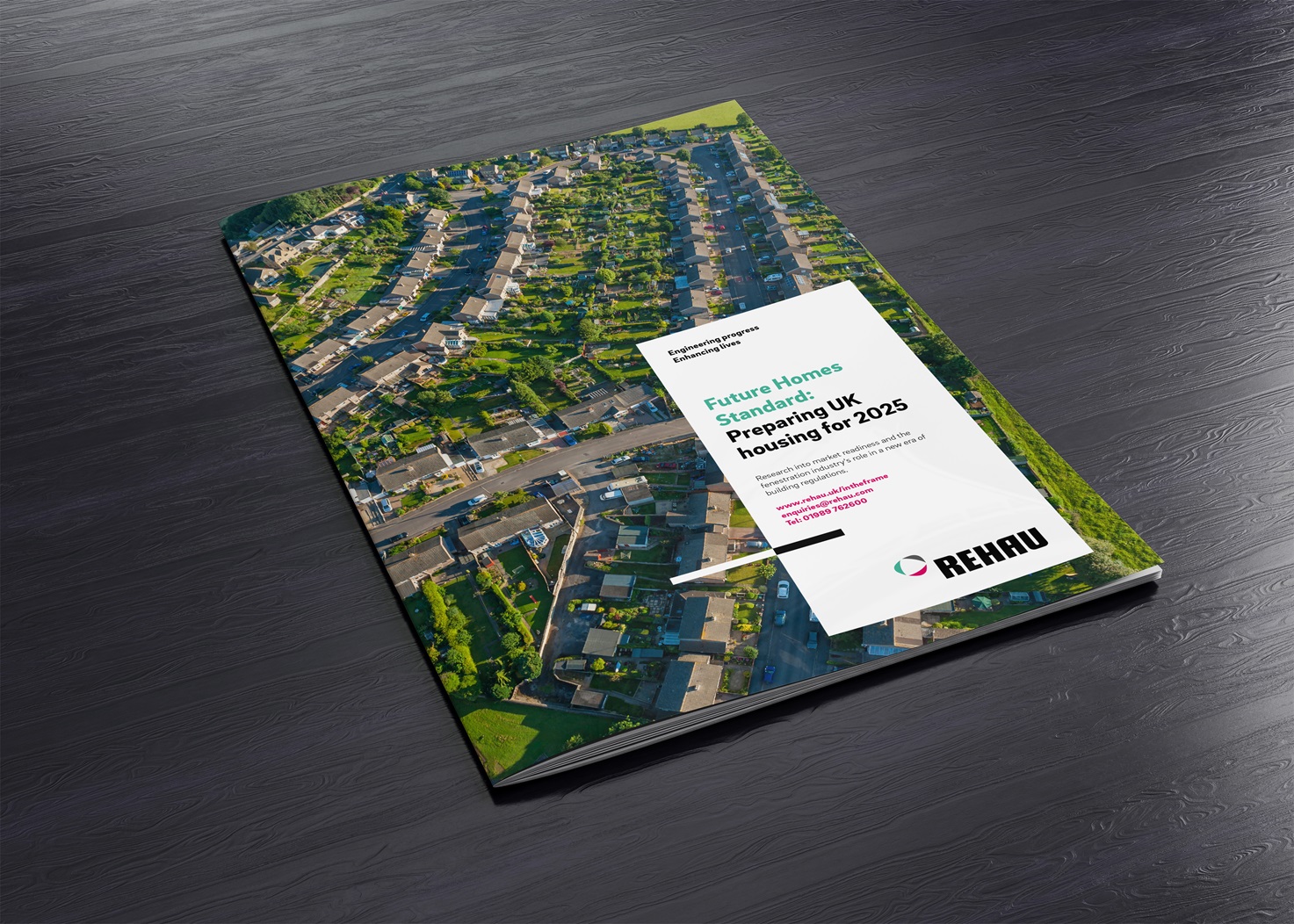Future Homes Consultation – Get Involved
Epwin Window Systems has published a guide to the Future Homes Standard consultation document to help customers navigate the detail of the proposal –...
Read Full Article
Two-thirds of housing market decision makers remain unprepared for the Future Homes Standard. Kevin O’Neill, of Rehau UK, looks at the role fabricators can play in implementing more thermally efficient windows.
The purpose of the Future Homes Standard (FHS) is simple – to make new and existing homes more energy efficient in line with the UK’s net zero ambitions. Since its introduction in 2022, the FHS’ impact is already being felt across the housebuilding supply chain.
Given the role of windows in a structure’s thermal performance, and the standard mandating uplifts to Part L of the building regulations, fenestration professionals are highly affected by these updates. Fabricators are therefore in an interesting position ahead of 2025, when the latest standards will be enforced. Sitting between developers and installers and responsible for manufacturing frames that can achieve U-values of 0.85 W/m2K in line with the 2025 uplift, they have a key part to play in ensuring compliant homes.
As the current regulations mandate windows with U-values between 1.1 and 1.4 W/m2K, the scale of the task is clear. This is also to say nothing of making existing homes more efficient, especially with the UK Green Building Council forecasting that 80% of today’s buildings will still be in use in 2050.
Opportunity
With such upheaval expected extremely soon, it would be fair to assume that the housebuilding market and its supply chains are on track to develop and refurbish homes in line with the FHS. However, recent research has demonstrated this is not the case, opening up an opportunity for fabricators.
Discovering disconnects
Specifically, the latest market readiness report from Rehau has revealed clear barriers to progress. The report, titled Future Homes Standard: Preparing UK Housing for 2025, surveyed 200 building product decision makers on how prepared they were for the impending FHS uplifts. Worryingly, 79% said it was going to be ‘somewhat challenging’ or ‘very challenging’ to meet the current timeline, and no respondents were aware of window systems meeting the mandatory 0.85 W/m2K U-value.
Considering suppliers already offer products achieving this level of performance, this awareness gap is concerning. It points to a disconnect between the FHS legislation and its implementation that fabricators can play a role in addressing. Specifically, by working closely with material suppliers such as Rehau, these organisations can ensure compliant frames are available and help bridge knowledge gaps housebuilders and installers may have.
As these performance standards are mandatory, knowledge of regulatory changes and products that meet required levels will be key to avoiding project delays and costs caused by incorrect specification.
Supplier support
Currently, the housebuilding industry regards the standard’s uplifts as an obstacle the sector is not ready for. It will only be overcome with added expense and as-yet undeveloped window solutions. However, this is not the case – suppliers including Rehau already offer FHS-compliant profiles.
As a valuable link in the housebuilding chain, fabricators are well-placed to highlight this, affect change and assure that 2025’s updates can be taken in stride. No new materials or practices will be required – just good practice and existing high-performance fenestration components.
This level of understanding is vital for organisations looking to succeed in the modern construction landscape, in which windows will play a major role. With this in mind, Rehau has invested heavily to provide marketing and technical assistance for fabricators about the latest legislative updates. Businesses with any further questions on the FHS can contact Rehau’s support teams via the below link.
Picture: Rehau UK’s Future Homes report.
Article written by Kevin O’Neill, Rehau
05th November 2023